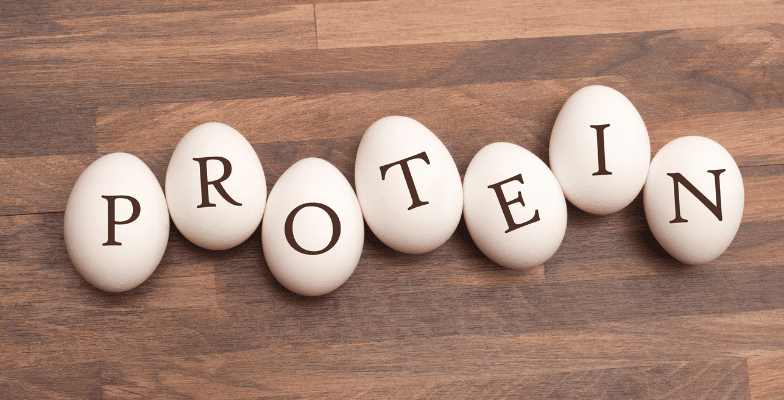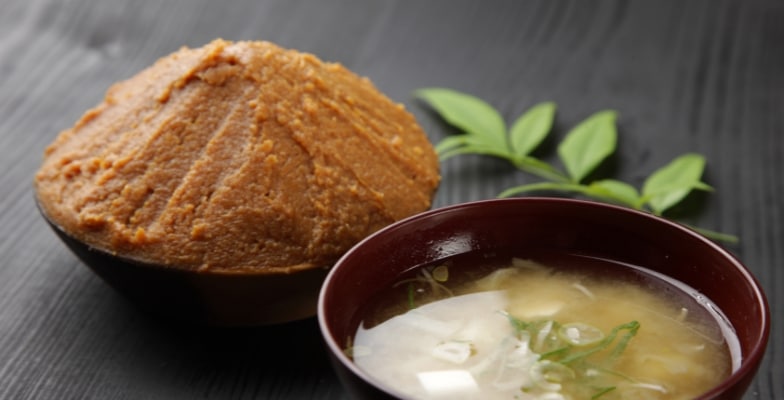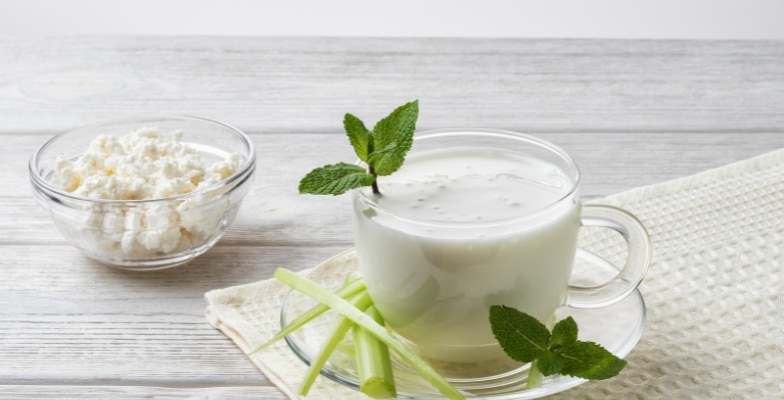7 Functions Of Protein In The Body

Introduction
Life goes faster on protein.
~Martin H. Fischer
Protein is one of the three macronutrients. It is made of amino acids linked like beads in a necklace. Our bodies use twenty different amino acids that join to make thousands of different proteins.
Different parts of our bodies need different kinds of protein, which means the protein our heart needs is different from what our lungs need. It is as if our bodies are kitchens in which we use amino acids as ingredients to cook proteins.
Out of the twenty amino acids, our bodies can make eleven (non-essential amino acids), but we need to obtain the others (essential amino acids) through our diets. One gram of protein provides four calories.
Complete Protein
A protein source that provides all nine amino acids is called a complete protein or high-quality protein. Animal-based protein sources, such as meats, eggs, fish, etc., are complete protein sources.
Incomplete Protein
Incomplete protein sources lack one or more essential amino acids. Plant-based protein sources, such as rice, lentils, grains, etc., are incomplete protein sources.
One exception, soy, is the only plant-based protein that contains all nine essential amino acids.
Related Article: Plant Protein Vs. Animal Protein: Which is Better?
According to the National Academy of Medicine, the RDA (Recommended daily allowance) for protein is 0.8g/kg body weight for a sedentary individual. 1https://www.ncbi.nlm.nih.gov/books/NBK56068/table/summarytables.t4/?report=objectonly
However, for active individuals, numerous studies suggest an intake of approximately double the RDA, ranging between 1.2-2g/kg of body weight.
Related Article: How Much Protein Should I Eat Per Day?
7 Functions Of Protein
1) Enhanced Immunity
Here is what an article by Stacey Cohen, published on CNN, says about protein. 2http://edition.cnn.com/2007/HEALTH/diet.fitness/11/14/cl.best.defense/index.html?iref=newssearch
The amino acids that are found in protein form the building blocks of all the body’s cells- including the cells that power your immune system.
If you do not consume enough protein, you will manufacture fewer white blood cells to combat antigens.
Research suggests that consuming protein can help strengthen the immune system and fend off illness. Proteins help to form antibodies to fight infections. 3https://www.ncbi.nlm.nih.gov/pubmed/17403271, 4https://www.ncbi.nlm.nih.gov/pmc/articles/PMC3670108/
When harmful invaders like bacteria and viruses enter our cells, our bodies produce antibodies that eliminate them. Without antibodies, bacteria and viruses would be free to multiply, make their own colonies, and overwhelm our bodies.
But our bodies are smart. They remember the formula they created to fight a specific pathogen. So the next time the pathogen attack us, the antibodies respond quickly. 5https://www.ncbi.nlm.nih.gov/pmc/articles/PMC2715434/, 6https://www.ncbi.nlm.nih.gov/pmc/articles/PMC4159104/
Basically, our bodies develop immunity against diseases they are exposed to. Since the antibodies our immune systems use are made from amino acids, adequate consumption of protein is recommended.
2) Growth & Maintenance
Protein is vital for growth and maintenance. Our cells keep reconstructing themselves, and they need protein for this continuous process. After water, proteins are the most abundant molecules in the human body. The amino acids in proteins are essential building blocks of body tissues, including muscle, skin, bones and hair.
There are special times of rapid growth when we need more protein, such as during infancy, childhood, adolescence, pregnancy, and breastfeeding. 7https://www.ncbi.nlm.nih.gov/pmc/articles/PMC5104202/, 8https://www.ncbi.nlm.nih.gov/pmc/articles/PMC4942872/
A person’s need for protein also increases when they are sick or recovering from an injury or surgery. Body tissues are constantly exchanging proteins, as some molecules are always breaking down while others are built to replace them.
Because of this dynamic exchange, we must consume adequate amounts of protein daily, even when we no longer need it for growth. 9https://www.ncbi.nlm.nih.gov/pubmed/28468890, 10https://www.ncbi.nlm.nih.gov/pmc/articles/PMC4555150/
In summary, for the growth and maintenance of tissues, our body needs protein. Our bodies’ specific protein needs depend on our health and activity level.
3) Biochemical Reactions
Protein performs many physiological functions, including catalyzing chemical reactions.
Enzymes are proteins that act as catalysts in biochemical reactions. These enzymes are vital for chemical processes like digestion and cellular metabolism. Without enzymes, most chemical processes in the body would happen very slowly, and life would not exist.
As it is said, ‘Form defines function.’
The structure of enzymes allows them to combine with other molecules inside cells called substrates, which catalyze reactions that are essential to metabolism. 11https://www.ncbi.nlm.nih.gov/pubmed/15193309 Enzymes play many roles in chemical processes. Let’s look at two of them.
Digestion
Enzymes are essential for digestion. They play an important role in breaking larger food molecules into subunits that are small enough for cells to use and diffuse. Different enzymes have different functions.
-Amylase catalyzes the digestion of carbohydrates in the mouth and small intestine.
-Pepsin catalyzes the digestion of protein in the stomach.
-Lipase catalyzes reactions needed to emulsify fats in the small intestine.
-Trypsin catalyzes further digestion of protein in the small intestine.
Biosynthesis
Biosynthesis is the process of making new, complex molecules from smaller subunits generated by cells. Enzymes are critical for biosynthesis.
The products of biosynthesis are necessary for cellular and metabolic processes deemed essential for survival. Examples include amino acid synthesis, nucleic acid synthesis, ATP synthesis, chemosynthesis, and others.
4) Acts As A Messenger
Some proteins act as a messenger and function as chemical-signaling molecules called hormones. These proteins are secreted by endocrine glands and are transported by our blood to target cells or organs, where they bind to protein receptors on the cell surface.
Hormones control or regulate specific physiological processes, which include growth, development, metabolism and reproduction. The principal endocrine glands are the pituitary, thyroid, parathyroid, adrenals, pancreas, and gonads.
Hormones fit into the following categories. 12https://www.ncbi.nlm.nih.gov/books/NBK20/
Steroids- These hormones are made from cholesterol. The sex hormones testosterone and estrogen are steroid based.
Amines- These hormones are derived from the modification of amino acids. They are synthesized from tyrosine or tryptophan. Examples include epinephrine, norepinephrine, and dopamine.
Protein And Peptide Hormones- These hormones consist of multiple amino acids that link to form an amino acid chain. Peptides consist of short-chain amino acids, whereas protein hormones are larger polypeptides. Most hormones are made of proteins and polypeptides.
Here Are More Examples Of Hormones. 13https://www.ncbi.nlm.nih.gov/books/NBK9924/
Growth Hormone- promotes the growth of body tissue.
Prolactin Peptide- promotes milk production.
Cortisol Steroid- increases blood glucose levels.
Insulin- reduces blood glucose levels.
Glucagon- increases blood glucose levels.
5) Maintains Body pH Levels
Protein plays a vital role in regulating the acid-base concentration (pH) in bodily fluids, such as blood, saliva, etc. 14https://www.ncbi.nlm.nih.gov/pmc/articles/PMC4670772/, 15https://www.ncbi.nlm.nih.gov/pmc/articles/PMC1803027/
What do we mean by pH? pH is a scale used to measure how acidic or basic a water-based solution is. pH ranges from 0 to 14, with 7 being neutral. Less than 7 indicates acidity, and greater than 7 denotes basic nature. Examples of pH values of common substances are. 16https://www.epa.gov/sites/production/files/2015-10/documents/1622624.pdf
§ pH 0 – Battery acid
§ pH 1 – Stomach acid
§ pH 5 – Black coffee
§ pH 7.4 – Human blood
§ pH 10 – Mild detergent
§ pH 14 – Caustic soda
Our bodily fluids function best at a neutral pH (approximately 7). Many things we encounter daily, such as foods, beverages, and pollution, can change the pH of bodily fluids. A constant pH is necessary, as even a slight change in pH is harmful or potentially deadly. 17https://www.ncbi.nlm.nih.gov/pmc/articles/PMC4180894/
Thanks to protein! The protein in our blood acts as a buffer to help maintain our neutral pH. When the pH level of our blood becomes too acidic, the protein buffers in the blood pick up hydrogen ions until the pH level returns to neutral.
And if the pH level of our blood becomes too basic, protein buffers release hydrogen ions to make the pH neutral again.
6) Provides Energy
Although the body prefers carbohydrates and fats as its primary sources of energy, protein plays a role in providing energy as well. Protein provides four calories per gram, the same as carbohydrates, whereas fat provides nine calories per gram.
Our bodies reserve energy sources as fuel backup to be used in the future. Any extra calories we consume are stored as fat. Protein is chemically similar to glucose, except that it contains nitrogen. Glucose and fats metabolize more efficiently than protein.
As long as we consume enough calories from other sources, protein is not turned into energy, but whenever our bodies are out of fuel reserves, they use protein as fuel. Our muscles use fatty acids when they are resting or doing a very low-intensity activity, but when intensity levels increase, muscles depend on glucose.
But what happens when we are running low on glucose? You guessed it right. Protein comes to the rescue again. Amino acids are converted into glucose to help provide energy to our muscles when we are low on other sources of energy.
This is how the whole process goes: The amino acids that make protein molecules are deaminated, meaning the nitrogen-containing amine group is removed.
Deamination produces ammonia, which the cells release into the blood to be filtered out by the kidneys and excreted in the urine. The carbon sections that remain can be converted to energy or stored as fat.
Protein can provide energy in situations like fasting, intense activity, or inadequate intake of calories.
7) Maintains Fluid Balance
Protein in our blood is responsible for maintaining the fluid balance between our blood and the surrounding tissues. Albumin and globulin are blood proteins that help maintain fluid balance by keeping water in the blood. Blood protein can attract and keep the fluid in the bloodstream. 18https://www.ncbi.nlm.nih.gov/books/NBK204/
If we do not eat enough protein, levels of albumin and globulin eventually decrease, causing fluid to leak out of the blood vessels and accumulate in tissues. As more and more fluid pools in the spaces between cells, swelling or edema occurs, especially in the stomach region. 19https://www.ncbi.nlm.nih.gov/pmc/articles/PMC4462841/
The severe result of protein malnutrition described above is characteristic of kwashiorkor, a condition mostly seen in developing countries. Kwashiorkor occurs when a person consumes enough calories but does not consume enough protein. 20https://www.ncbi.nlm.nih.gov/pmc/articles/PMC3717488/
If a person suffering from protein malnutrition is fed protein along with other nutrients they need, their body can make more blood proteins. Fluid is then attracted back into the bloodstream, and swelling, or edema disappears.
Conclusion And Recommendation
Protein is the building block of the human body. It plays a crucial role in our growth and development. Optimal protein intake depends upon our activity level and health.
Protein plays various essential roles. It makes hormones, which act as messengers in our bodies. It makes antibodies that protect us from harmful pathogens, and it bolsters our immune system. Protein also acts as a buffer that maintains pH levels, and it plays a significant role in biochemical reactions in our bodies as well.
Finally, whenever our body lacks energy, protein can act as a source of energy when fats or carbohydrates are not available. Collectively, these functions make protein an important nutrient for our health.
For sedentary individuals, the RDA for protein is 0.8g/kg of body weight. However, active individuals should consume more, in the range of 1.2-2 g/kg of body weight.
What do you think about this article? Have any questions? Let me know in the comments below!

Skill-Based Education.
Global Recognition.
Powerful Community Building
Secure a certificate of completion in as little as a day by graduating from one of our free courses.
Get Access to Our Free Courses. No Credit Card Required.

Fabulous Body Membership
Your All-Access Pass to A Fabulous Body & A Rewarding Career
25+ Certificate Courses & Programs, All Included
15 Day Free Trial, 100% Money-Back Guarantee
About Rohit Kumar
Rohit Kumar is an avid writer who puts a lot of his emotions in words through his articles. Today, he is a certified fitness expert with a vast knowledge on nutrition and has contributed to the pages of Fabulous Body with his articles.











Really liked the way you have simplified complex information into understandable text for common people
Very nice insight in simple words for the common people like us. Thank you for this article. Keep on posting this type of insights on regular basis.
Waiting for something on boosting the immunity at this time of COVID-19, through physical activity & food control..
Very useful information
Thanks for your comments guys, Rohit will be happy to read these:)
Thank you Vidhu, Ashish Kumar, and Samina for your kind words, your words will only encourage me to do better! 🙂 Stay tuned